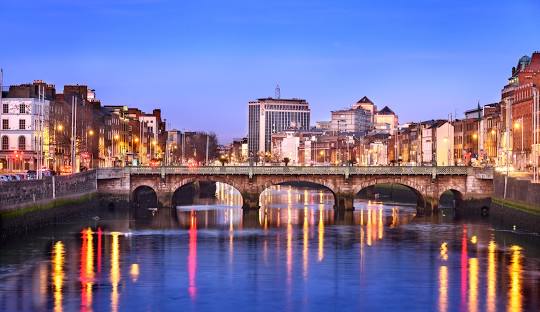
Governance in Dublin: A Closer Look at Local and National Leadership
Posted by Webjuice SEO Agency in Dublin on
Dublin operates under a dual governance structure encompassing both local and national responsibilities. At the local level, Dublin City Council, a unicameral assembly of 63 members, is elected every five years from designated electoral areas. The Council is led by the Lord Mayor, whose term lasts one year, with official duties carried out at Dublin's historic Mansion House. Regular council meetings take place at Dublin City Hall, while administrative tasks are centralized at the Civic Offices on Wood Quay.
The Council oversees an annual budget for critical services such as housing, traffic management, waste disposal, drainage, and urban planning. The implementation of its decisions falls under the jurisdiction of the Dublin City Manager, a role with significant executive authority. Committee members, policies, and the Lord Mayor are selected by the majority party or coalition within the Council.
At the national level, Dublin is the political heart of Ireland. The city hosts the Oireachtas, Ireland's national parliament, which includes the President of Ireland, Dáil Éireann (house of representatives), and Seanad Éireann (upper house). These governing bodies convene at Leinster House, a historic building on Kildare Street that has served as the home of the Irish parliament since the establishment of the Irish Free State in 1922.
Other critical government operations are housed in the Government Buildings, which include the Department of the Taoiseach, the Council Chamber, the Department of Finance, and the Office of the Attorney General. Originally designed as the Royal College of Science, these buildings became the seat of government ministries in 1921 and have since evolved into their current roles.
Dublin's national political representation includes 20 TDs (Teachtaí Dála) elected across five constituencies: Dublin Central, Dublin Bay North, Dublin North-West, Dublin South-Central, and Dublin Bay South. Additionally, Dublin West, a constituency shared with Fingal, elects four TDs.
The most recent 2020 general election highlighted Dublin’s diverse political landscape, with representatives from parties including Sinn Féin, Fine Gael, Fianna Fáil, the Green Party, the Social Democrats, Right to Change, Solidarity–People Before Profit, and the Labour Party.
Dublin's blend of local and national governance reflects its historical and modern significance as Ireland’s capital, ensuring it remains a vibrant center of political and administrative activity.